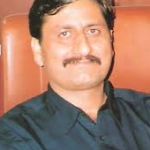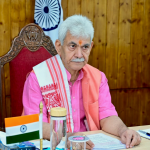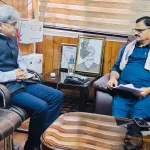LOST ART OF READING
In the gentle rustle of turning pages, in the scent of ink and paper, in the quiet patience required to read line after line, there lies a fading magic. Today, that magic competes with the blinding glow of screens, the ceaseless pings of notifications, and the infinite scroll that never allows the soul to rest. The culture of book reading, once a deeply woven thread in the fabric of our lives, now hangs loose, fragile, and forgotten by many in the younger generation.
We live in an age of hyper-connectivity, yet increasingly, we are disconnected from ourselves. A generation raised on algorithms and dopamine-driven apps is losing the capacity for stillness. Our fingers dance on screens, but our minds seldom pause. Information floods us, but understanding is rare. Social media offers constant stimulation but leaves us craving something deeper, have you something real. That “something” is often found in books.
Books are sanctuaries of reflection. They do not shout like a tweet, nor vanish like a story on a screen. They invite us to slow down, to think, to question. In them, we find not only facts but feeling, not only knowledge but wisdom. And wisdom, as the philosophers knew, is not merely to know, but to live rightly.
“We are what we repeatedly do. Excellence, then, is not an act, but a habit,” wrote Aristotle. Reading is such a habit, one that shapes the soul, disciplines the mind, and fosters empathy. Unlike the quick fixes of online content, reading demands endurance. It asks for our time, our focus, our vulnerability. And in return, it gives us the world. But today’s youth are losing this sacred rhythm.
Research shows that attention spans are shrinking. Many young people find it hard to read even a few pages without feeling restless. The instant gratification offered by phones has rewired the brain’s reward system. Scrolling has replaced seeking. Consumption has replaced contemplation.
Yet the danger of this cultural shift goes beyond just declining literacy. It affects how we think, how we relate to others, and how we view ourselves. In a world dominated by images and snippets, we risk losing our ability to engage in deep thought. We skim headlines but forget to explore contexts. We react, but seldom reflect. Reading books is an antidote to this crisis of consciousness.
Religious traditions have long recognized the sacred power of reading. The first word revealed in the Holy Qur’an was “Iqra”, Read. Not scroll, not watch, but read. It was a call not just to literacy, but to enlightenment. Similarly, in the Bible, Revelation 1:3 says: “Blessed is the one who reads aloud the words of this prophecy…”These texts suggest that to read is to engage with the divine, to partake in something holy.
Philosophers too have exalted reading. Confucius said, “No matter how busy you may think you are, you must find time for reading, or surrender yourself to self-chosen ignorance.” And Descartes remarked, “The reading of all good books is like conversation with the finest minds of past centuries.” What a tragedy it is, then, to choose silence in an age where so many voices of wisdom lie waiting between covers.
To rekindle the reading culture, we must begin at home and in schools. Let us not merely give children devices to pacify them, let us give them stories to ignite them. Parents must read to their children, not only to educate, but to enchant. Teachers must go beyond textbooks to introduce young minds to the literature of life. Communities must invest in libraries as if they were sacred temples of thought.
Reading must not be presented as a chore, but as a joy. A book should feel like a friend, a refuge, a revolution. Imagine if each child grew up reading not only for grades but for grace, if teenagers were encouraged to read poetry instead of popularity metrics. Imagine a culture where people discussed ideas as passionately as they discuss influencers.
Let us remind this generation:
Let ink be the river we drink from,
Let pages be the wings we fly upon,
In words, we find the worlds within,
And silence turns into a sacred song.
The digital world is not our enemy, but it must be balanced. There is room for technology, but it must not come at the cost of our inner lives. For when we stop reading, we start forgetting. We forget history, we forget empathy, we forget imagination. And in forgetting, we begin to lose what it means to be fully human.
Knowledge is never still, it either grows or fades. So let us choose to grow, quietly and deliberately, one book at a time. Every page we turn is more than just words read; it’s a step forward in the story of our shared humanity. In learning, we don’t just gather facts; we deepen understanding, strengthen connection, and carry wisdom forward.
This is not just a cultural need, it is a moral one. The world needs more thinkers, not scrollers. More seekers, not spectators. And every great thinker begins with the simple act of reading.
(Author can be reached at: Email: [email protected])








